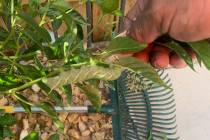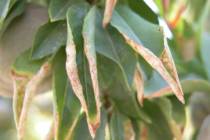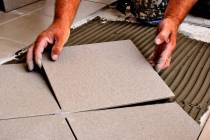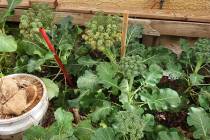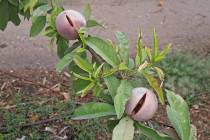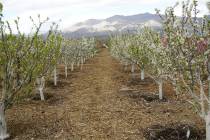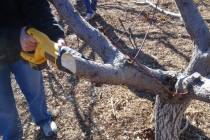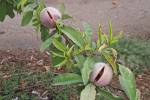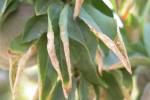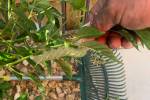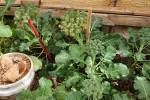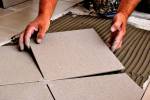Stress also plays role in plants’ health
: In your recent article "Heat, rock mulch will harm photinias," you state the writer may opt to use plants that tolerate heat better near hot walls. Could you provide a list of such plants? I'm getting ready to convert my lush landscape to xeriscape and have several hot areas near walls. I would like to know which plants may have a chance at surviving with rock mulch.
A: The main problem with photinia and other plants that struggle with rock mulch is not necessarily just the heat. It also has to do with how well the plant can handle that heat stress.
In many ways similar to us, plants can handle heat much better if they are healthy. Some plants are much healthier if they are not grown in rock mulch. This is the case with photinia and many others.
Most of this poor health is due to poor plant nutrition when growing in rock mulch. Over time, rock mulches turn soils into nutritionally poor soils. Most of this has to do with the exhaustion of organic matter. Organic matter decomposes nearly completely after about four or five years unless replenished. Organic matter is decayed animal and plant life in the soil.
Organic mulches, like wood mulches, left on the surface of the soil and in contact with water decompose and replenish organic matter lost over time. Rock mulches add nothing to the soil organic matter, allowing it to become exhausted. Once this happens, the nutrients, soil improvements and soil-life, such as earthworms, disappear.
Trying to substitute a fertilizer in place of organic matter is tricky. There are 17 essential plant nutrients. Most fertilizers supply only three: nitrogen, phosphorus and potassium. There are fertilizers that have more than that but it is really a crapshoot to try and figure out what is missing and how much to apply. Besides, when you apply a fertilizer to a soil that has rock mulch on top, it does nothing for general soil improvement.
Most plants, even those plants that can tolerate rock mulches, grow better with their roots under organic mulches.
As far as plants go, I really hesitate in making lists for specific purposes. I know somebody will say, "How come you didn't mention so and so?" Or, someone will take the list literally and think that if I didn't mention it, then it must not be heat tolerant.
So generally speaking, desert-adapted plants will do better with rock mulch than nondesert-adapted plants. Plants that originate from deserts or very dry climates will fare better than those that don't. But those plants are still going to prefer organic mulch over rock mulch.
The next thing you can do is to modify that very hot microclimate in your yard into something less harsh. The clue will be to reduce the sunlight on heat-radiating surfaces. Tricks to do this include shading the rock mulch with a tree or arbor and getting something established on the hottest walls. This also will help reduce your electric bill in the summer.
You might want to consider something deciduous that drops its leaves during the winter so you get some heat off of these surfaces when it is cold. It also is very possible that this part of your yard can be used for growing plants tender to our winter cold such as semitropical and even tropical plants like citrus and bougainvillea. Citrus, like other fruit trees, does not like rock mulch but does like warm winter temperatures. It is also possible you might get some winter vegetables in that area because of the heat.
Bob Morris is an associate professor with the University of Nevada Cooperative Extension. Direct gardening questions to the master gardener hot line at 257-5555 or contact Morris by e-mail at morrisr@unce.unr.edu.








